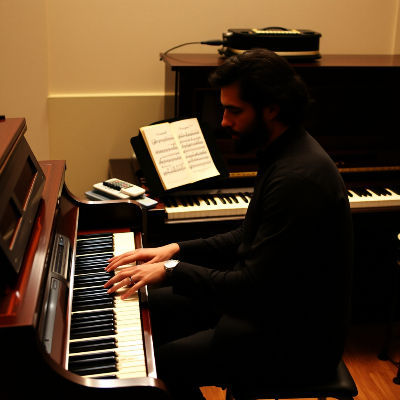A Word for Singers and Musicians
- Marcus Tankard
- Jun 3
- 2 min read
Worship is far more than music; it’s an encounter that has the potential to change lives. Psalm 40:3 tells us that God puts a new song in our mouths, a song of praise so powerful that it compels others to revere and trust in the Lord. This is not a random act but a deliberate cooperation with the Spirit of God to convey the sounds of heaven. Every melody, every lyric we sing carries an assignment directly from heaven.
In music ministry, we’re not simply participating in a routine; we’re engaging in a spiritual transaction. Anointed music blankets the room in such a way, that it opens spiritual senses, allowing those present to perceive, hear, and experience God’s presence in ways we never imagined. This transformative capability underscores the importance of skillful and intentional worship, both in private and corporate settings.
Musicians and worship leaders are not merely performers; they are vessels tasked with releasing heaven’s melodies into the earth. But this can only happen if you first encountered God deeply yourself. Worship is a lifestyle, not a performance. It requires familiarity with God’s presence, the same way one confidently navigates a familiar space like a grocery store.
The story of Elijah and Elisha provides a powerful metaphor for the mantle of worship. When Elijah placed his prophetic mantle on Elisha, it wasn’t just a symbolic act; it was an impartation of spiritual sight and access to the unseen realm. Similarly, worship music carries a mantle that opens spiritual portals, enabling us to see, hear, and experience God in extraordinary ways.
John 5:25 speaks of the dead hearing the voice of the Son of God and coming to life. This profound awakening mirrors what happens when anointed music reaches our spiritual senses. Worship, at its highest potential, is endowed with the power to awaken hearts, open ears, and transform minds. It’s not about entertainment; it’s about divine activation.
As musicians and singers, we’re called to journey into these heavenly places and bring back melodies that breathe life into congregations. But how can we play the melodies of heaven if we’ve never been there ourselves? Ephesians 2 reminds us that we are seated in heavenly places with Christ, a vantage point from which we can hear and release the sounds of heaven. Are you allowing your worship to be a conduit for this divine exchange?
Reflection Question: How can you cultivate a lifestyle of worship that draws others into God’s presence? Do you navigate worship with confidence, or are you still an apprehensive visitor?
Discover more transformative insights in my new series, School of Worship, available now at marcustankard.me.


Comments